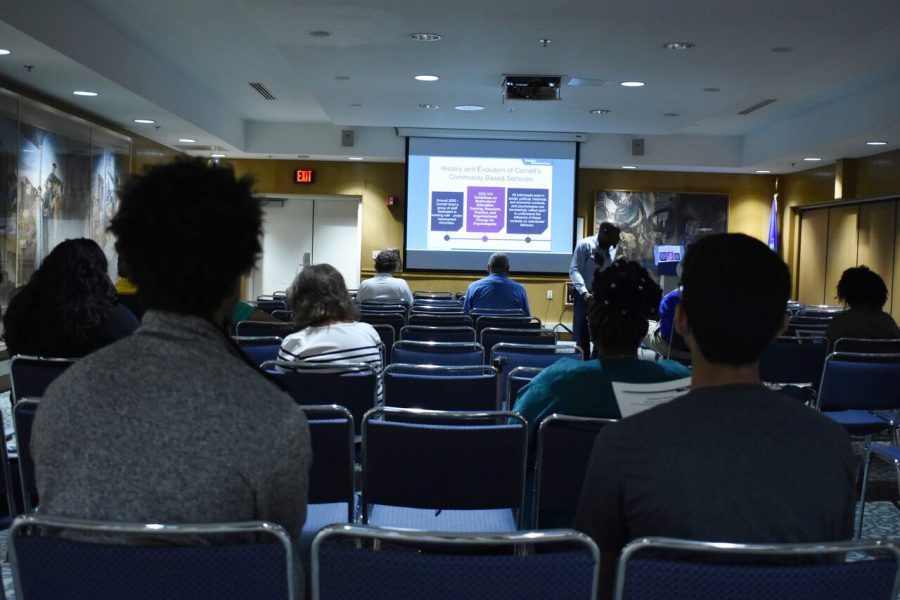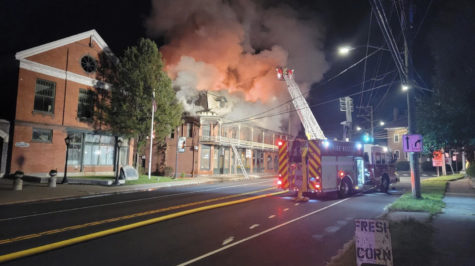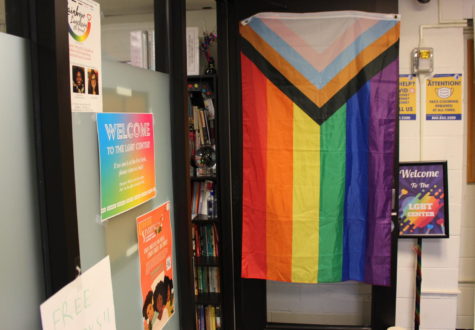What About Black Men’s Mental Health?
Central Connecticut is now focusing more mental health efforts on men.
September 27, 2018
Central Connecticut has made improvements to help their students address mental issues over the years, and what they’ve found in doing so is that the students mostly suffering in silence are men.
With this new information, CCSU has taken on the responsibility to bring these male students into a community where they can work together to become great men of society. This campaign is known as the Man Enough Support Initiative.
The campaign provides a safe space for male college students to discuss personal issues and stressors that play a role in preventing them from personal growth. Their goal is to fight the barriers that keep many men from graduating and assist them on their journey to earning a diploma.
Associate Counselor for the Man Enough Support Initiative William Fothergill has been part of the campaign for many years.
“The initiative quickly grew from a support system to an initiative that looks at the health, well-being and retention and graduation of college men,” Fothergill said.
“The group is very diverse,” he went on. “Some years it fluctuates [and] we might have more white or Hispanic students depending on the time. I’ve seen ages from eighteen to fifty-six in our groups. We’re multicultural, multi-age [and] we collaborate with everyone.”
This past Thursday, the Man Enough Support Initiative hosted a webinar on “Black Men and Their Mental Health,” providing strategies to break down the barriers and stigmas keeping black men from achieving success in their education.
“Many programs that address diversity and multiculturalism suffer from being vague with the goal being not to offend anyone,” guest speaker Gregory Eells said. “But people have to be more comfortable with the uncomfortable topics.”
For most colleges, one of the most uncomfortable things to talk about is mental health. According to the American College Health Association, more than 75 percent of mental health issues begin before the age of 24. During college, many students begin to show signs of anxiety, depression and suicidal behavior. One in every 12 college students has a suicidal plan. Yet, black and Latino students are the ones most unlikely to seek help and counseling, especially in men.
“The image of a man, speaking from the Western-American culture, is a very powerful, dominant and controlled man. But when you’re a black or Latino man living in a culture where you’re being suppressed, then you have to work double time to feel like you are there,” Fothergill explained.
The stigma of being “crazy” or looking weak for needing mental help has become a barrier keeping black men from expressing themselves appropriately.
Jihad Aziz, another guest speaker at the webinar, went on to elaborate that there is a weathering of the suppression occurring in the mind. This build-up of emotion thus leads to, “micro and macro aggressions that mentally wear down the mind” and “severely threaten a person’s health and ability to respond in a healthy manner to their environment,” he said.
As Suicide Prevention Month comes to an end, the webinar stressed that it is important to think about how not everyone may be showing signs that they need help, as the signs of mental illnesses are not always clear. However, help is available.
For more information on mental health at CCSU, visit ccsu.edu/counselingandwellnesscenter or visit Student Wellness Services located in Marcus White. Counseling and therapy are offered to all students, even if it is just to talk.
To learn more about the Man Enough Support Initiative, visit Room 205 in the Student Wellness Services of Marcus White.













